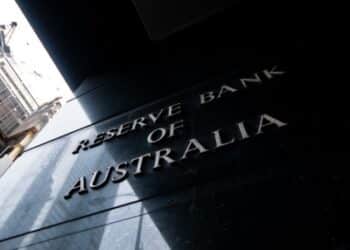Earlier this week, the Federal Reserve confirmed that rates would go somewhat higher than previously expected but that a slowing in the pace of increases would likely soon be appropriate.
The Fed’s median September meeting “dot plot” suggested a terminal policy rate of around 4.60 per cent, but a new “dot plot” is expected at the conclusion of the next FOMC meeting on 14 December — one that will move closer to 5 per cent and mirror current market pricing.
Also this week, the Reserve Bank of New Zealand (RBNZ) raised the official cash rate (OCR) by another 75 basis points (bps) to 4.25 per cent while its Monetary Policy Committee (MPC) projected a rate of around 5.5 per cent by the September quarter 2023, up from its previously forecast peak of 4.1 per cent.
In announcing the move, the RBNZ noted that “the committee agreed that the OCR needs to reach a higher level, and sooner than previously indicated, to ensure inflation returns to within its target range over the medium-term … core consumer price inflation is too high, employment is beyond its maximum sustainable level, and near-term inflation expectations have risen.”
New Zealand’s current inflation rate is on a headline basis at 7.2 per cent while on a trimmed-mean basis it is at 6.4 per cent — compared with 7.3 per cent and 6.1 per cent in Australia.
But despite this, the Reserve Bank of Australia (RBA) is not expected to follow the RBNZ’s path, instead, it is predicted to stick to its “Australian exceptionalism” belief — a belief which GSFM’s investment strategist, Stephen Miller, believes could do more harm than good.
In his most recent update, Mr Miller said this “Australian exceptionalism” theory — which is based on the notion that Australia’s wage and inflation circumstances are “different” to elsewhere in the developed world — is profoundly lacking evidence.
Certainly, he said, “any ‘difference’ was not evident in either the September quarter CPI or wage price index figures”.
“Worryingly, it was a predilection toward ‘Australian exceptionalism’ which was responsible for the egregious policy missteps from the RBA through 2021 and into 2022.
“The RBA has defended its comparative caution by warning against ‘scorching the earth’ to get inflation down implying a more aggressive approach involves outsized costs in terms of activity and employment,” Mr Miller said.
“But drawing on the ’70s experience, and in an echo of chairman Powell’s comments at his November press conference, an alternative construct is that that the ‘scorched earth’ more likely comes from central banks exhibiting some prevarication in assuming a frontline and aggressive role in containing inflation and then having to slam the brakes aggressively later in the piece”.
Mr Miller did however concede that the “RBA might not be on a wrong track”.
“Time will tell,” he said.
“But domestic price indicators continue to exhibit considerable momentum”.
Noting that while the RBA’s communication may be more nuanced and, on the surface, at least gives the RBA optionality when it comes to policy, Mr Miller said he fears that it is overly reluctant to aggressively “walk the walk” on inflation.
“The upside risks to the RBA inflation forecasts issued last week are clear, as are the implications for monetary policy,” Mr Miller said.
“That underscores the key risk with the RBA approach: that it admits the possibility of the emergence of the sort of inflation inertia that was last experienced on a global scale in the late ‘70s or early ‘80s.
“As the RBA Governor has noted the path to returning inflation to the 2 to 3 per cent target and keeping the economy on an even keel ‘is a narrow one’. I suspect that, unlike the Fed, the RBA should be possessed of greater anxiety as it approaches 2023,” he concluded.
Earlier this month, the RBA announced that headline inflation is forecast to peak at 8 per cent, a little higher than a few months ago.







